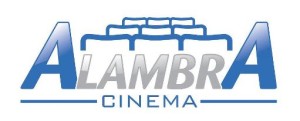A course action lawsuit is filed against Wells Fargo Bank NA alleging that the mortgage company unlawfully “corrected” agreements for large number of clients’ Wells Fargo mortgage loan terms. Plaintiffs have actually accused Wells Fargo of changing readiness date on loans, modification they claim damages house values and marketability for home loan holders.
The grievance had been filed by Philip and Ingrid Tippett of Florida. The Tippetts declare that Wells Fargo unlawfully changed the readiness times on the house equity credit line after realizing it had neglected to set that loan to terminate following the mortgages’ final readiness date. Based on the course action lawsuit, failing woefully to adjust these times could have led to the debts becoming that is unsecured the bank’s risk that they won’t be compensated.
Nevertheless, instead of informing clients for the error so upon itself to unilaterally file thousands of documents meant to “correct” the maturity dates in order to make them compliment the home equity loans that they could authorize a change, Wells Fargo allegedly took it. These papers are apparently referred to by Wells Fargo being an “affidavit of modification.”
“Wells Fargo acted unilaterally and without authority. Our suit seeks to undue the incorrect they did,” the counsel that is plaintiff Law360.
The course action lawsuit contends why these noticeable modifications harm the titles for the houses linked with the mortgages. This harm, in change, decreases the true houses’ home value and marketability, in line with the problem. These unauthorized modifications presumably constitute an offense that is criminal state guidelines in Michigan, Colorado, California, Florida, Pennsylvania, and perhaps other states.
The court is being asked by the plaintiffs to look for the legitimacy for the affidavits. They desire to get a ruling why these papers are void and of no impact. They even want Wells Fargo to withdraw the papers and also for the court to prohibit the organization from filing documents that are similar the near future.
Based on the Tippetts, in 2003, these people were told through bank officials during finalization for a $100,000 mortgage contract that when they sent applications for a $25,000 home equity loan, they’dn’t have to pay out-of-pocket for an advance payment on the house. The loan documents were finalized, the Tippetts had reportedly agreed to a first mortgage, a second mortgage lien, and a home equity loan secured by the mortgage by the time.
The Tippetts were allowed to draw from the line of credit relating to the home equity loan until Oct. 9, 2013 under the agreements. According to the stability, the repayment duration for the loan had been presumably set to achieve a maturity date of either October 2028 or October 2043.
Nevertheless, roughly 6 months ahead of the readiness date associated with the true home equity loan, the financial institution presumably filed an affidavit of modification.
The affidavit desired to amend the maturity date for the 2nd home loan from October 2013 to October 2043, in accordance with the course action lawsuit.
The plaintiffs state that this document ended up being filed on 2, 2013 in Marion County, Fla., where the loan was issued and is still attached to the couple’s Florida home chain of title april. The few claims that this modification caused them monetary damage.
Wells Fargo presumably neglected to alert the few concerning the amended readiness date, either before or after it filed the affidavit amending that date.
The Tippetts claim the mortgage company acted without their permission or consideration. Because of the secrecy that is alleged that the affidavits had been filed, the couple argues that the statute of limits in this matter should really be tolled.
“No reasonable individual might have a explanation to examine whether Wells Fargo had recorded any instruments, notably less instruments that are fraudulent regarding their properties,” the Wells Fargo mortgage loan class action company web site lawsuit reads.
“Wells Fargo actively concealed the filings and did not look for permission and authorization from plaintiffs therefore the course users.”
The plaintiffs are searhing for to establish a nationwide course of borrowers in similar circumstances. Class users consist of bank clients suitable a couple of demands: they need to have developed a property equity credit line loan; the Well Fargo mortgage loan must enable the consumer to gain access to a revolving personal credit line that is guaranteed by way of a second home loan lien; the 2nd home loan lien must later be amended by an affidavit of modification supposed to replace the maturity date or other regards to the home loan. Based on the Tippetts, this course could consist of a large number of possible users.
They even aspire to establish a subclass of borrowers who obtained loans in Florida to be able to look for injunctive relief regarding the allegations that the mortgage company violated state guidelines. The Tippetts estimate that there may be a huge selection of borrowers that are entitled to become listed on this course.
The Wells Fargo course action lawsuit additionally makes note of various other controversies that Wells Fargo happens to be tangled up in over the past a decade. The class action lawsuit describes many different misleading financing techniques including instances in that the bank unilaterally modified Wells Fargo mortgage loan payment terms, or neglected to look for authorization before starting often unnecessary reports with respect to their clients.
In the event that you received an additional Wells Fargo mortgage loan securing a personal credit line simply to have the financial institution amend the regards to that loan via an affidavit of modification, comment regarding the experience below.
The Tippetts as well as the proposed course are represented by George Franjola of Law workplace of George Franjola, along with Benjamin J. Widlanski, Rachel Sullivan, and Robert J. Neary of Kozyak Tropin & Throckmorton LLP.

